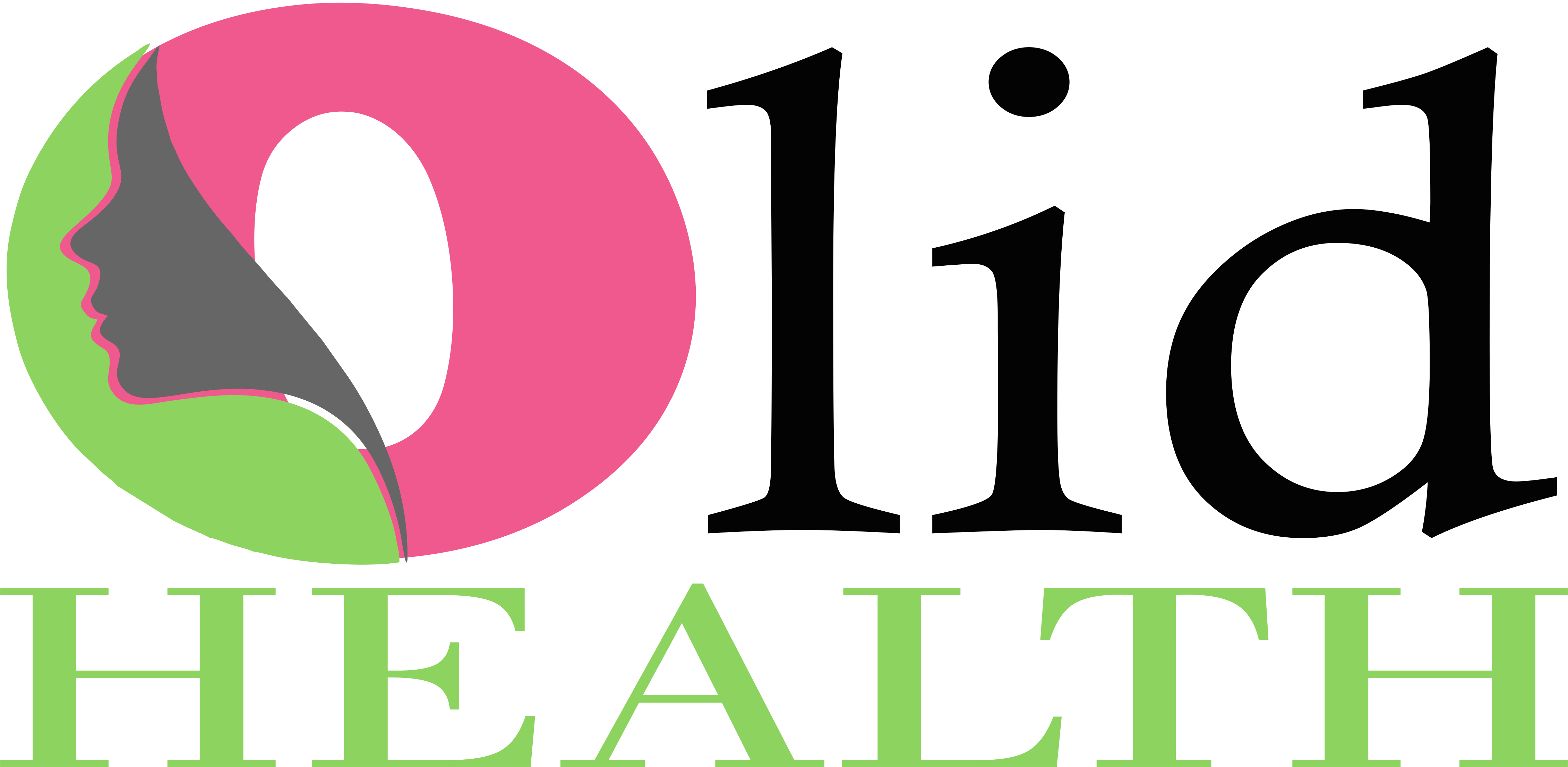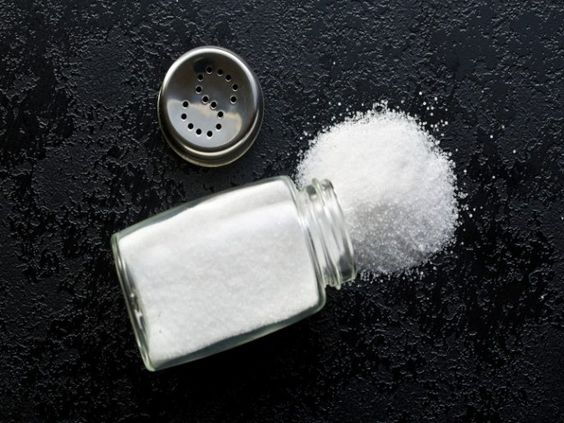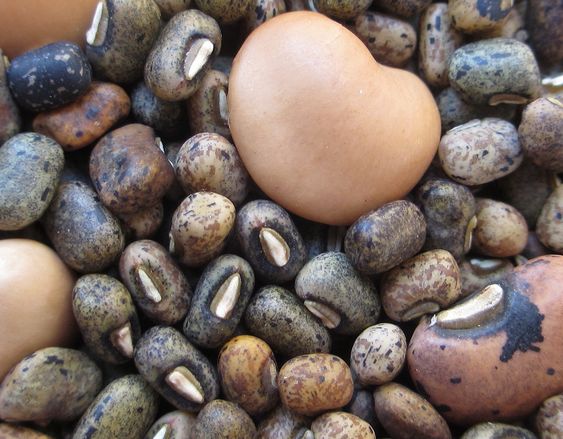Olidhealth.com – Microminerals are essential minerals that important in several metabolism systems. A small dosage of this mineral has huge benefits for maintaining body health. Mineral serves as a “helper” in the production of enzymes such as protein phosphatases, nitric oxide synthase, and many more.
Unlike its benefits for keeping a healthy body, micromineral deficiency can be affected to your body. The same goes if too much of it can be less beneficial or even cause more problems like mineral intoxication. In the previous article, we explain about 7 essential minerals, especially macromineral which have good benefits for health.
For this reason, we want to show you each of micromineral includes its properties in your body, how to obtain in your foods, deficiency, and disadvantage if too much of it.
Iron (Fe)
Iron is a micromineral that has benefits for a healthy body. There are iron-containing proteins such as myoglobin which are used to enhance the oxygen in muscle tissue. This mineral also presents in red blood cell hemoglobin serves as a carrier of oxygen to the tissue [1] [3].
Iron is essential in the production of metabolic enzymes. It can control mood because it “helps” the synthesis of a steroid hormone to control neurotransmitters such as dopamine and serotonin. Balancing your intake of iron with consuming foods that can increase the absorption of iron. Furthermore, there is food that contains high iron such as:
- Red meats (beef, veal, lamb, and pork)
- Organ meat (kidney, liver, and pate)
- Fruits (banana, apple, olive, berries, and pomegranate)
- Seeds and legumes (lentils, kidney peas, soybean, garbanzo, etc.)
- Green vegetables (spinach, kale, lattice, and cabbage)
- Fortified food (cereal with fortified iron)
Iron Deficiency
Iron deficiency can cause anemia because of lower hemoglobin in the red blood cells. Anemia symptoms such as dizziness, weakness, fatigue, irregular heartbeat, chest pain, hard breathing, and coldness in the hands and feet. In addition, reducing the immune system again infection is also caused by iron deficiency [1].
Side Effect if Too Much Iron
Too much iron can damage your body in several cases. Excessive iron can be caused by hereditary hemochromatosis. It is a condition that the person has iron overload caused by repeating blood transfusion or inheritance with the same condition. People with hemochromatosis can lead to some diseases such as diabetes, chronic liver disease, or even heart failure.
Manganese (Mn)
Manganese in micromineral which body needs a small amount of it. The benefit of manganese is improving bone health, boosting the immunity system, and protecting cells from being damaged by bacteria and viruses invasion [3]. Manganese is essential in the production of enzymes that are linked to the development system and blood sugar regulation [2]. The dietary nutrient manganese can be found in these foods as:
- Whole grain (brown rice, wheat, oatmeal)
- Sea product (mussels, oyster, and clam)
- Nuts (hazelnut and pecans)
- Legumes (lentils and soybean)
- Green leafy vegetable (spinach and kale)
- Fruits (unique berries and pineapple)
- Herbs and spice (tea, mushroom, etc)
Manganese Deficiency
It is a rare case to lack manganese because the everyday dish has been provided it. People with conditions such as diabetes and epilepsy can have manganese deficiency. Lack of manganese can cause skin rash and loss of hair in men, poor growth for children, weak bone.
Side Effect if Too Much Manganese
Too much manganese can harm your body in several ways. Manganese toxicity is caused by overexposure to this mineral. It is better to avoid an environment with a high concentration of manganese. The symptom of manganese intoxication can cause a hearing problem, insomnia, loss of appetite, weakness, mood change, and even depression.
Copper (Cu)
Copper is an important micromineral as a helper for oxidative enzymes in cellular metabolism [1]. It is present in the production of blood cells and controls the nervous system. Another benefit of copper can be used as an antioxidant agent [2] [3]. Copper can prevent diseases such as osteoporosis and cardiovascular if you have enough copper in your body.
These are food with copper for maintaining your health such as:
- Organ meat (liver)
- Seafood (oyster, shellfish, salmon, and crab)
- Mushroom (raw shiitake)
- Nuts and seeds (cashew nut, almond, chickpeas, walnut, and sesame seed)
- Avocadoes
- Tofu
- Wheat
- Meat
- Fortified food
Copper Deficiency
Copper deficiency is a rare case in humans. If there are people with this condition, it can cause anemia because related to iron deficiency. Reduction of enzymes caused by copper deficiency can reduce immune system again infection and form connective tissue disorder. It also can lead to bone-related diseases like osteoporosis [1].
Side Effect if Too Much Copper
People can be affected by copper poisonous in several cases. For example, accidentally consume a high level of copper caused by copper-containing pipes in drinking water. Copper intoxication can cause vomiting, nausea, diarrhea, and even liver damage.
Iodine (I)
Iodine is a micromineral that has many benefits in our body. It needs a small amount to maintain function in several cellular metabolisms. Iodine is important to make thyroid hormone to maintain the metabolism system [2]. Thyroid hormone has many functions such as supporting the immune system, developing the nervous system, maintaining metabolism, and promoting bone health [1]. It’s also an essential mineral to the proper development of bone and brain function during pregnancy.
- Fish (tuna and cod)
- Seafood (shrimp, oyster, and seaweed)
- Eggs
- Dairy products (milk, yogurt, and cheese)
- Fortified food (table salt fortified with iodine)
Iodine Deficiency
In pregnancy cases, pregnant women need more iodine than normal people. Deficiency of iodine during pregnancy can harm the fetus such as intellectual disability or stunted growth [1]. In severe iodine Deficiency, it can cause the thyroid gland to enlarge or goiter. It also has other conditions like hypothyroidism which can cause depression, fatigue, dryness, or weight gain.
Side Effect of Excessive Iodine
Too much iodine can cause hyperthyroidism. This occurs when the hormone thyroxine produced exceeds its limit and speeds up the metabolic system. It can cause an irregular heartbeat and weight loss. Other symptoms of this condition include fatigue, increased appetite, sweating, restlessness, difficulty sleeping, or even swelling of the thyroid gland such as a goiter.
We don’t recommend taking iodine in high dosage for medication purposes. It would cause symptoms like stomach pain, vomiting, and feeling like burning in the digestion system.
Zinc (Zn)
Zinc is a micromineral that has benefits in several cellular systems. It presents as a “helper” to produce some protein, cell, even DNA [1]. Zinc plays a role to help produce enzymes that can break down carbohydrates and lipids. Moreover, It is also used to maintain cellular components and membranes to keep cells and organ healthy [3].
Zinc has antioxidant and anti-inflammation properties to improve the immune system that helps fight off viruses and bacteria. Furthermore, It is also one of the essential minerals for development during pregnancy, infancy, childhood [2].
The body can’t produce zinc, so it should have intake externally. There are foods with high of zinc such as:
- Grain (whole-grain cereals, brown rice, and rice)
- Red meat (chicken, pork, beef, turkey, and lamb)
- Seafood (mussels, crabs, lobsters, and oysters)
- Seeds and legumes (black-eye beans, lentils, kidney beans, and pumpkin seed)
- Fish (sardines and salmons)
- Green vegetables (asparagus, kale, and beets)
- Mushrooms
- Fortified food
Zinc Deficiency
Elder people have more susceptible to zinc deficiency because have lower absorption in their metabolism system. In addition, Vegetarians, and people with high-consumed alcohol also have a risk of zinc deficiency [1]. There are three-stage in zinc deficiency.
- Low zinc deficiency has symptoms such as impaired taste, impaired or loss of appetite, and slow wound healing.
- Mild zinc deficiency has a symptom such as growth degradation and decreasing immune system again infection.
- High zinc deficiency has symptoms such as delayed sexual maturation, diarrhea, hair loss, or even impotence
Side Effect if Too Much Zinc
People with too much zinc are uncommon except if take an uncontrolled high dosage of zinc supplement. It can cause Zinc intoxication which has symptoms like vomiting, nausea, fatigue, diarrhea, lethargy or weakness, and fever. We suggest taking zinc as medication with caution.
Molybdenum (Mo)
Molybdenum is micromineral which is important in small dosages. This essential mineral can be transferred to your diet from animals or plants that feed this mineral. It’s present in bone formation, production of amino acids such as cysteine and methionine cholesterol and carbohydrate metabolism, and synthesis of urea [2]. It is also beneficial for improving liver health because it indirectly helps make enzymes that break down alcohol and toxic substances [1].
Molybdenum can be found in this food:
- Whole grains
- Meat guts (liver and kidney)
- Diary product (milk, yogurt, and cheese)
- Nuts and legumes (soybeans, kidney beans, lima peas, and black-eyed peas)
- Green vegetables (cauliflower, spinach, lettuce, and kale)
Molybdenum Deficiency
It is a rare case for people who have Molybdenum deficiency. However, if you lack these minerals, it can cause vomiting, nausea, irregular heartbeat, hard breathing, or even coma. In male reproduction, Molybdenum deficiency can cause erectile dysfunction and a low reproduction system in males [1].
Side Effect if Too Much Molybdenum
If too much fo molybdenum can cause gout arthritis. It is a build-up in the bloodstream or muscle that causes pain and swelling on joints. Excessive Molybdenum also can cause dysfunctional liver and interfere with bone production.
Cobalt (Co)
Cobalt is a micromineral that presents in cobalamine or known as vitamin B12. These minerals are essential in vitamin B12 production [1]. Other benefits of cobalt such as regulating some production enzymes, helping the formation of red blood cells, and protecting nerve cells.
A dietary source with high content of cobalt such as:
- Fish
- Coffee
- Fruits (pear, orange, grape, tangerine, apple)
- Red meat (chicken liver)
- Herbs and spices (cinnamon and coffee)
- Green vegetables (broccoli, turnips, spinach, cabbage, and parsnip)
- Nut and grains
Cobalt Deficiency
Cobalt deficiency is rare because it will be related to how much vitamin B12 is in the body. If people lack cobalt, they also have vitamin B12 deficiency. Lack of Vitamin B12 can cause pernicious anemia. Symptoms of this disease are numbness, fatigue, or even degeneration of the nervous system. Low cobalt also causes heart breathing and lower thyroid function same as Iodine deficiency [1].
Side Effect if Too Much Cobalt
Cobalt-contaminated environments cause people to experience cobalt poisoning. High cobalt content in animals that lives in contaminated places can incidentally be eaten by a human. Prolonged exposure to cobalt at the excavation site can also cause cobalt intoxication and can lead to heart-related diseases such as heart failure. Symptoms of excessive cobalt cause weakness, fatigue, impaired vision, hearing, or even degeneration of brain function.
Fluoride (F)
Fluoride is an active mineral to prevent cavities in teeth. The outer layer in the tooth is known as enamel. Fluoride has been used to strengthen enamel by demineralizing it with other minerals like calcium and phosphate. It also has benefits to prevent tooth decay, protecting again bad bacteria and sugar deposits, and controlling pH in the mouth [2].
Fluorides are abundant in drinking water and product added with fluorides like toothpaste and mouthwash/mouth cleaner. A dietary source with fluoride content such as:
- Coffee and black tea
- Seafood (shellfish and shrimp)
- Fruits and grape-related food (wine and raisins)
Another source is fluoride supplements but the application of these supplements must be prescribed by your doctor/dentist.
Flouride Deficiency
There is almost no case of fluoride deficiency because we take enough fluoride in our daily meals. However, there is a possibility of people having a fluoride deficiency disorder. Lack of fluoride can increase tooth decay or even osteoporosis [1]. People with these conditions can take fluoride supplements to replenish the fluoride deficit.
Side Effect if Too Much Flouride
Most cases of fluoride intoxication are caused by long exposure to fluoride substances and drinking water with high content of fluoride. Excessive fluoride can cause dental fluorosis and skeletal fluorosis. The symptom of dental fluorosis is the presence of white spots in teeth but it doesn’t harm the body. However, It can be a symptom to the worse case.
Skeletal fluorosis is the same as dental fluorosis but harmful to the body. This condition can cause weakening of the bones and make bones brittle. A high concentration of fluoride can interfere with calcium making bone hardened and stiffness in joints. In worse cases, it can lead to calcification of the ligaments and unbearable pain in the bones and joints.
Selenium (Se)
Selenium is an essential mineral that has several roles to maintain a healthy body. In the immune system, it has properties as an antioxidant agent [1]. It’s also important to help enzymes release thyroid hormone [2]. Studies show that selenium may have benefits for maintaining heart health, preventing mental disease, or even reducing the risk of cancer [3].
There are foods with high selenium content that have benefits for your health.
- Beans and seeds (brazil nuts, green peas, cashews, and sunflower seeds)
- Meat (fish, ham, pork, beef turkey, etc)
- Dairy products (eggs, milk, and yogurt)
- Vegetable (broccoli, spinach, and potato)
- Fruits (grape, pear, and apple)
- Mushrooms
- Fortified food (fortified cereal)
Selenium Deficiency
Lack of selenium can cause similar symptoms like iodine deficiency such as thyroid-related diseases [1]. Additionally, it can cause fatigue, dizziness, weakened immune system, lethargy, and even infertility.
Side Effect if Too Much Selenium
There is not much research about selenium intoxication, but it can cause the same symptoms as selenium deficiency such as lethargy and dizziness. Studies show that selenium poisoning can alter personality and suicidal thoughts. In extreme cases, It can cause the same symptoms as arsenic intoxication.
Chromium (Cr)
Chromium is one of the essential trace elements that are required in very small amounts in the body. It contributes to helping the metabolism system. Furthermore, it plays a role in insulin production and helps break down carbohydrates to be converted into energy [1] [2]. Some studies suggest that taking chromium medication can reduce or prevent diabetes [3]. However, it is still being investigated for that benefit.
The foods that contain chromium is abundant in nature such as:
- Green vegetables (broccoli, sweet potatoes, and corn)
- Fruits (banana, apple, and grape)
- Diary product (cheese and yogurt)
- Seeds and legumes (green beans, peas, and brazil nuts)
- Meat and poultry
- Herbs and spices (garlic and basil)
Chromium Deficiency
Chromium deficiency can cause the same symptom as diabetes does. The symptoms of low chromium such as fatigue, increase blood sugar level, weight loss, or even neuropathy. Despite these symptoms, chromium deficiency rarely occurs in humans because our daily meals have to provide it [1].
Side Effect if Too Much Chromium
Taking high doses of chromium supplements can be bad for your health. Mild side effects of using chromium in a high concentration such as nausea, dizziness, headaches, and unstable mood. In serious cases, it can cause blood disorders like lowering blood sugar or damaging the nerves, kidneys, and liver. In addition, studies suggest that excessive chromium can lead to heart attack and other heart diseases.
Additional trace elements in the human body
Besides nutritions from macromineral and micromineral, There are other minerals that are present in our body in very small amounts. They are called ultra micromineral or another name is an ultra-trace element. The benefit to our body still is investigated and just less to know about it. These minerals are silicon, boron, vanadium, nickel, tin, bromine, and arsenic.
Conclusion
Micromineral has important value in our body. Knowing this mineral can gain knowledge about the benefit of each element. Moreover, you can avoid deficiency of minerals by consuming food containing these minerals. Also, be careful not to overconsume supplements with these minerals. Responsibility for your health is in your hand.
Reference
[1] https://www.ncbi.nlm.nih.gov/pmc/articles/PMC4940574/ – Risk and deficiency of micromineral
[2] https://www.ncbi.nlm.nih.gov/pmc/articles/PMC6993532/ – Micromineral overview
[3] https://www.researchgate.net/publication/347831797 – Several benefits of micromineral












